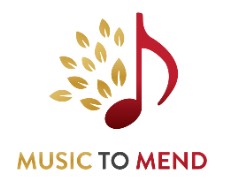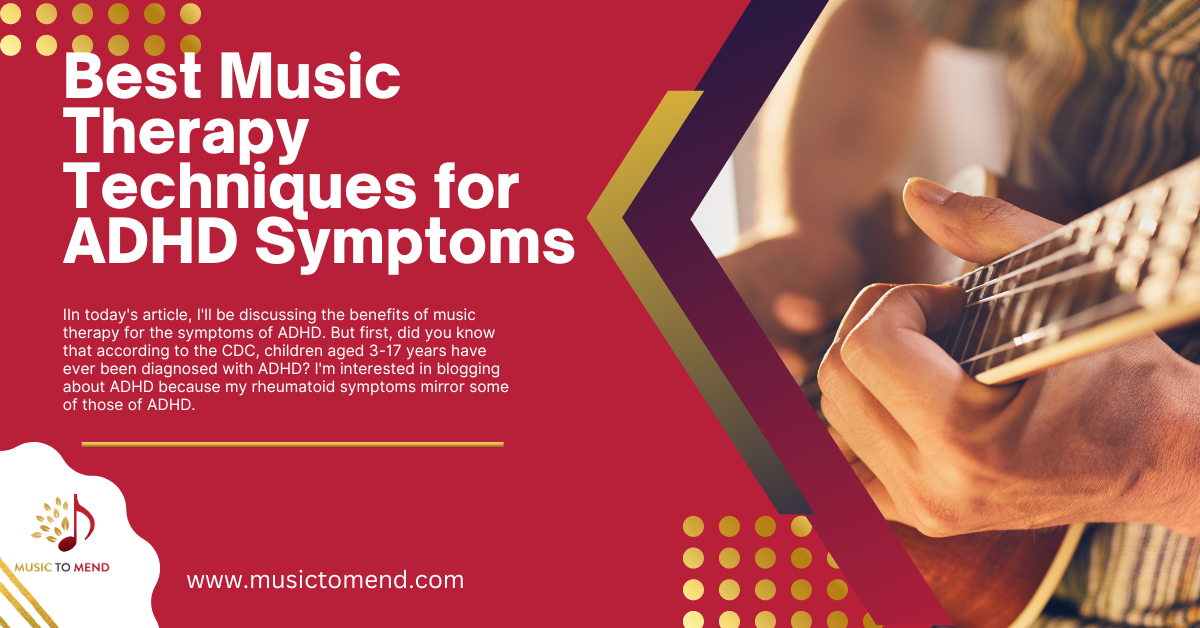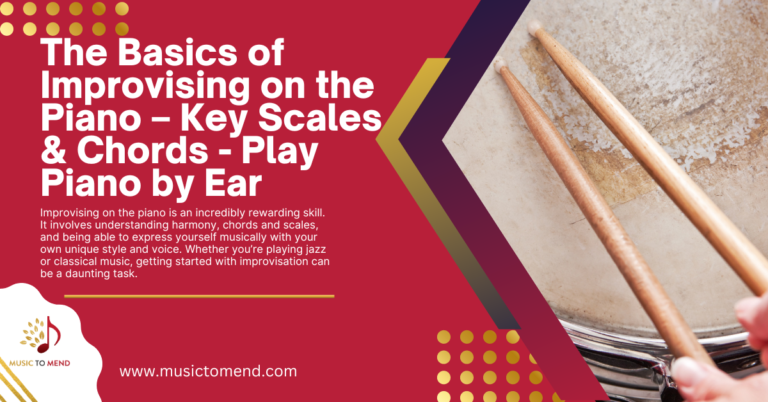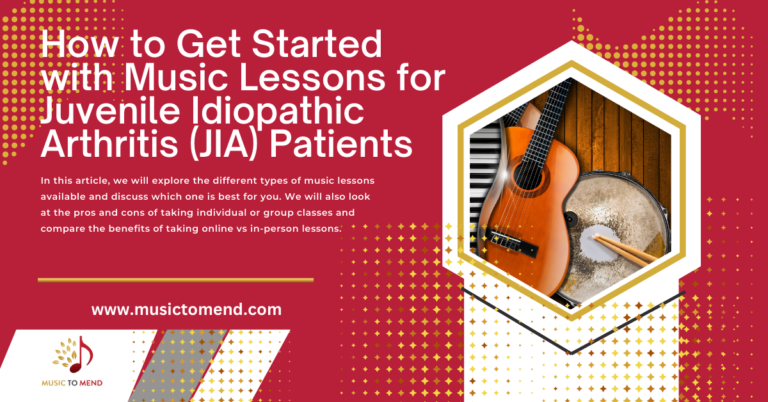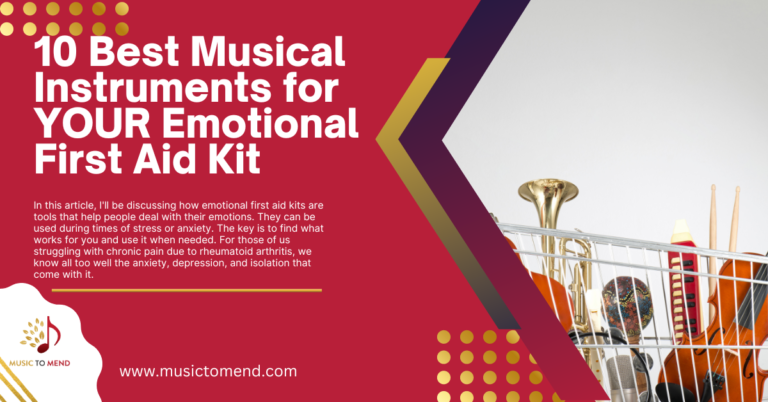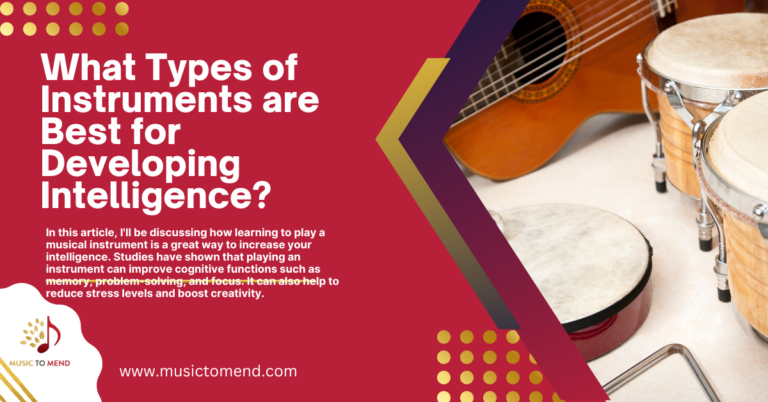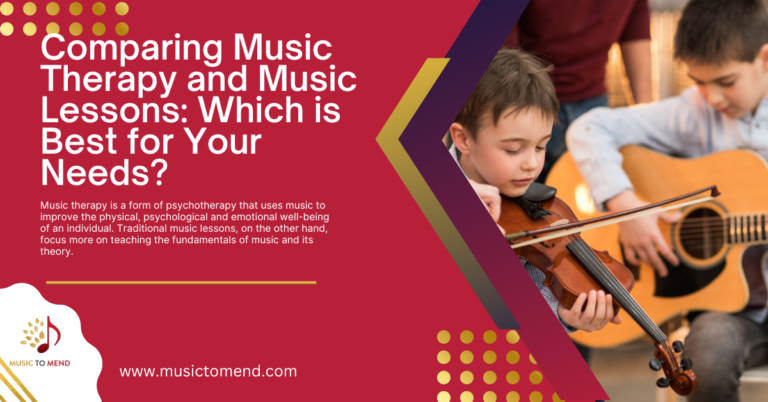Best Music Therapy Techniques for ADHD Symptoms

How Music Can Help Reduce Stress & Anxiety in Children and Adults with ADHD
In today’s article, I’ll be discussing the benefits of music therapy for the symptoms of ADHD. But first, did you know that according to the CDC, children aged 3-17 years have ever been diagnosed with ADHD? I’m interested in blogging about ADHD because my rheumatoid symptoms mirror some of those of ADHD. Since we share a lot of the same symptoms, i.e., fatigue, concentration problems, anxiety, depression, etc., it’s important that I share how music can help with many different types of diseases and disorders.
Music has been used for centuries to reduce stress and anxiety in children and adults with ADHD. It has been proven to be an effective treatment for reducing hyperactivity, impulsivity, and inattention symptoms. Music can be a powerful tool to help people with ADHD cope with their condition by providing relaxation techniques that can reduce stress levels, improve focus, and increase overall well-being.
Studies have revealed the efficacy of using calming music to help children and adults suffering from ADHD relax and better concentrate. Listening to music also allows individuals with the condition to put into practice relaxation methods, such as taking deep breaths or mindfulness meditation, which can help them manage their symptoms more effectively. Additionally, listening to certain types of music has been found to be beneficial for reducing feelings of anxiety in those living with ADHD.
The Best Musical Activities to Improve Concentration & Attention in Individuals with ADHD
Music can be a great tool to help individuals with ADHD improve their concentration and attention. Musical activities, such as playing an instrument, singing, and listening to music, can help individuals with ADHD focus on tasks and stay attentive for longer periods of time. Music also has the potential to reduce anxiety levels and increase positive emotions. Music can help individuals with ADHD focus and concentrate on tasks in order to improve their behavior because it can create a calming effect. Listening to music is often more motivating for people than reading or watching television; therefore, music is an effective way to combat boredom.
The following are examples of the best ways to use music for concentration:-
- Singing along to a song that makes the individual feel happy or calm-
- Listening to music before a task to help prepare the mind and body-
- Using fast-paced music as an attention filler when in between tasks-
- Playing with instruments such as drums, piano, and guitar in order to keep one’s hands busy. It is important for individuals with ADHD to be able to focus on tasks despite distractions.
Why Classical Music is a Powerful Tool to Ease the Symptoms of ADHD
One of the most effective ways to manage symptoms associated with ADHD is through classical music therapy. Research has shown that classical music can help reduce hyperactivity, improve concentration, and increase focus in children with ADHD. Furthermore, it can also provide a calming effect and help them relax in stressful situations. Classical music therapy is an effective tool for managing symptoms associated with ADHD and provides numerous benefits to those suffering from the disorder. It can improve attention span, reduce impulsivity, and help with emotional regulation. The benefits of classical music therapy are vast and include improving social skills, mood disorders, academic performance, and self-esteem. Classical music is also an effective tool for managing depression and anxiety as it has been found to positively impact symptoms of depression by reducing feelings of anxiety. In addition to this benefit, it is also found that patients who underwent classical music therapy experience fewer sleep disturbances when they are suffering from depression or anxiety. Therefore, classical music has the ability to aid in cognitive functions such as memory recall and concentration. According to the study conducted by Berkley, it was found that music therapy was effective in alleviating symptoms of anxiety and depression.

ES_Bandha – Van Sandano
How Listening to Classical Music Can Help People with ADHD Focus Better
Listening to classical music has been found to be beneficial for people with ADHD. Studies have shown that classical tunes can help improve focus and concentration when studying and reduce stress levels. Furthermore, it has been found that people with ADHD can better manage their emotions and focus on tasks when listening to classical music.
This is due to the fact that classical music is usually slow-paced and relaxing, which helps those with ADHD stay focused on their task at hand. Additionally, the calming nature of classical tunes can help reduce stress levels in people with ADHD, allowing them to concentrate better on their studies or work.
In conclusion, listening to classical music can be a great way for those with ADHD to improve their focus and concentration when studying or working. It also helps reduce stress levels and offers calming effects which can help those with ADHD manage their emotions better.
I hope you enjoyed the article as well as the bonus music. Use the music to relax and release any negativity and focus on your well-being.
Until next time, stay well and happy music-playing!
Bea
